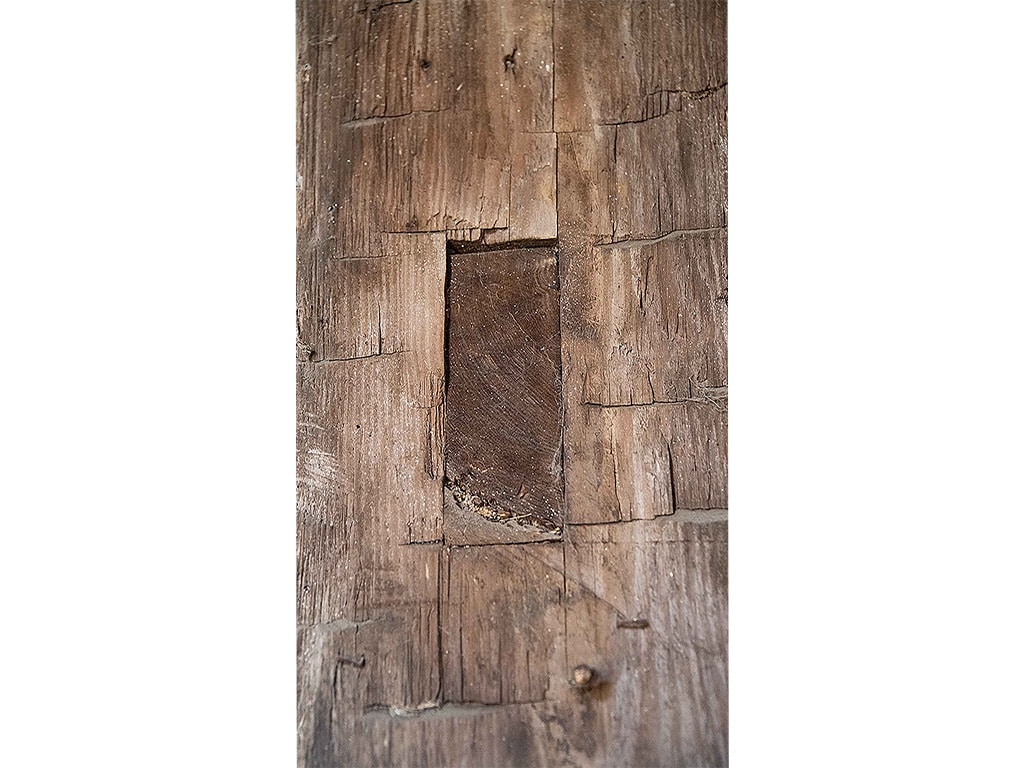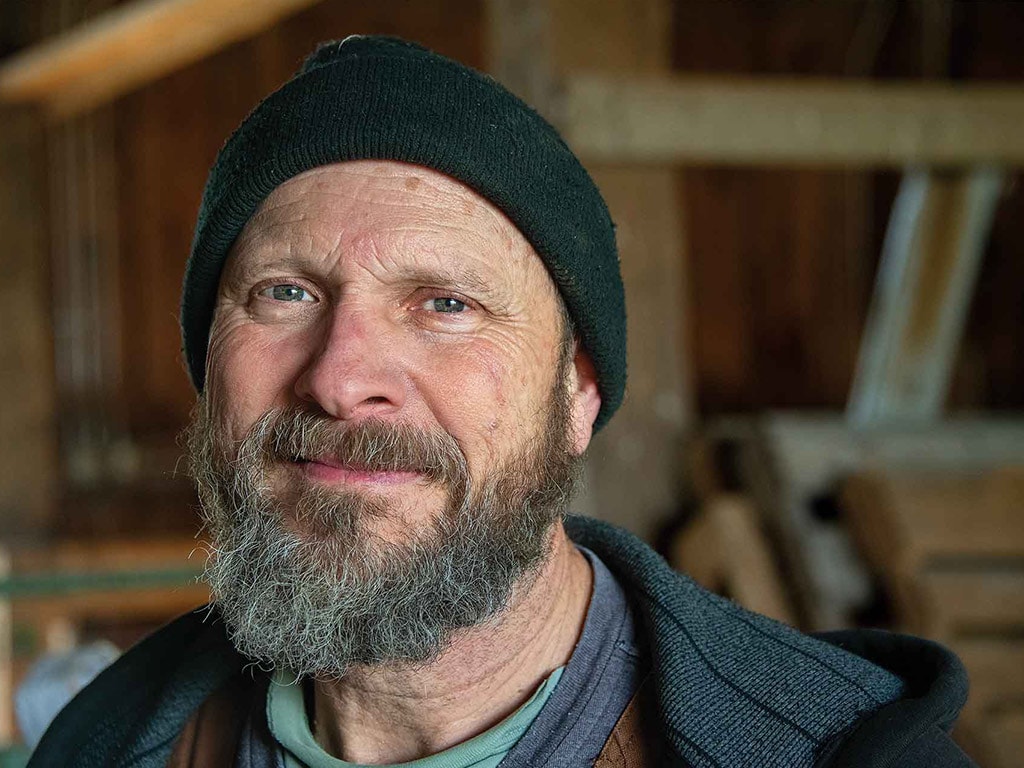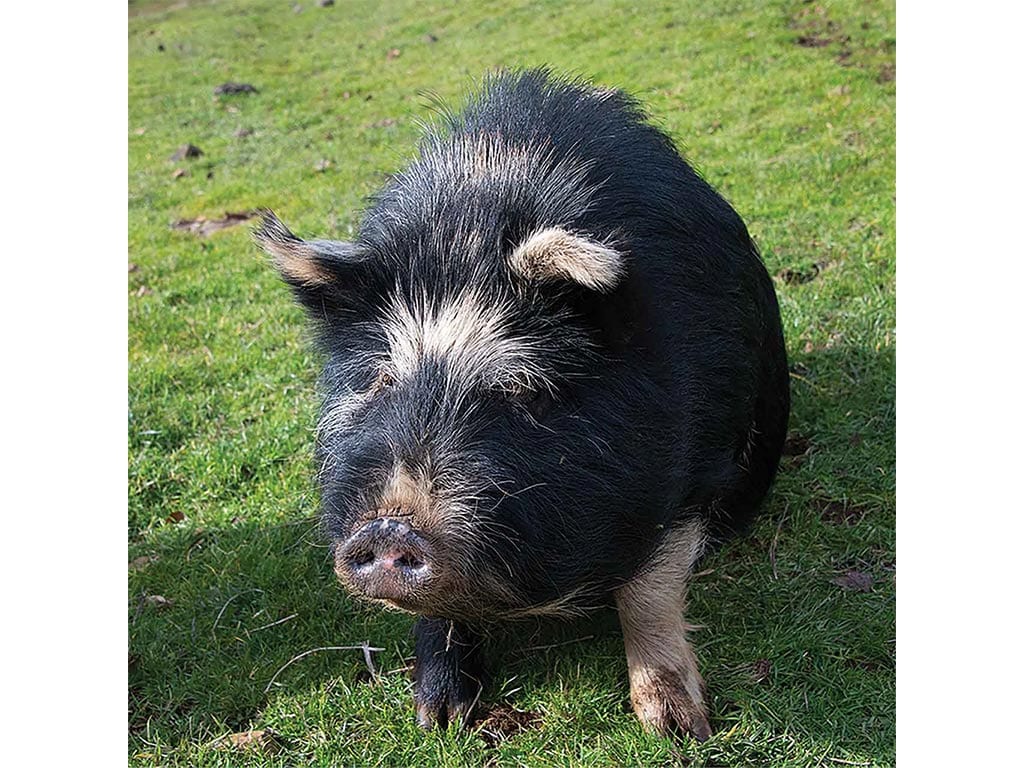Agriculture, Livestock/Poultry March 01, 2024
Easy Keepers
.
Sheep, cattle, and more on an Oregon homestead.
There's nothing easy about jumping into livestock production, so when Bryan and Mary Moon bought a 64-acre farm outside Sweet Home, Oregon, they studied up and invested in smart, hardy breeds that required a minimum of fuss.
The Moons started MoonLight Farm in 2015 with 60 ewes and 2 rams from the previous owners. Those sheep were Katahdins, a New England breed that doesn't require shearing because it sheds its hair coat. That certainly makes managing them easier (and cheaper).
But Moon notes that Mary moved up to the farm from California on her own while he was working the last few months of his career with the federal prison system. That led to some adventures keeping the sheep safe, including her charging into the pond on a cold winter morning to pull out a lamb that had wandered into the water.
Meanwhile, "I was reading everything I could about sheep so I would know what happens when they start having babies," Bryan says. He was serious about management from the start.
"When we got here and started farming, Mary said, 'I thought we were going to do a gentleman farm thing,'" he recalls. "I said, 'If I'm going to farm, it's going to be my business.' I'd never had a business of my own, so I jumped in with both feet and built my customer base with lambs."
Rotation. Over the years, MoonLight Farm's sheep have gotten a lot of company. In fact, they have become part of a bustling rotation through the farm's fenced paddocks.
"I'll run the cattle through, then the sheep come behind, so what the cattle aren't eating, the sheep eat," Moon says. "Plus, you deal with your parasites because sheep parasites won't live in a cow."
Moon has raised Herefords, but he is sold on Irish Dexters. At 700 pounds, a Dexter cow's live weight is less than the hanging weight of the Herefords he slaughtered in 2022. That makes Dexters ideal for families buying by the whole or half, and their short-legged, waist-high stature makes them relatively easy to handle.
Dexters are also easy at birthing time, delivering healthy 40-to-60-pound calves.
"We've had 30 calves and I have not pulled one Dexter," says Moon. "Since we've been doing Dexters, I have only lost one and had one bottle calf."
Last year, Moon added a Wagyu heifer—the breed behind Kobe beef—to his herd to try the cross-bred beef.
Mary tends LaMancha goats.
"The original reason I got the goats was to have goat milk in case I had bottle babies, which was a self-sustaining way to keep things rolling," Moon explains. "Then it turned into a small business selling goat milk, and we've done goat cheese and soap and ice cream."
Then there are a few American Guinea hogs, a small-statured breed known for their tasty pork and self-reliance.
"They're tasty and they're easy," says Moon. "You don't have to mess with them. They'll farrow right on the pasture. They're not like a commercial hog, where you've got to feed them a ton of feed—you feed them just a small amount and they do the rest, eating grass."
Above. The Moons' property was settled in 1850 by Anna Sprong, who was widowed during her family's journey on the Oregon Trail. Sprong and her children built the barn in 1852. Moon keeps careful records to select for Katahdin ewes that tend to bear twins or triplets—key to success in the lamb business. Moon's career took his family around the country before he retired and returned to his home state of Oregon with his wife Mary. American Guinea hogs are self-reliant, says Moon, thriving on a mostly-pasture diet and yielding great-tasting pork. LaMancha goats are a dairy breed, perfect for supplying bottle babies.
Cycling. Moon's rotation schedule is also designed to harness the flock's natural hormones to synchronize cycles for more successful breeding.
"I don't castrate my animals, I separate them from the ewes when they're four months old," he says. "Their behavior's fine. As long as you have a calm papa, you'll have calm genes.
"When I'm flushing the girls—putting them on good pasture or hay to put on a few extra pounds and get them into good shape for breeding, then getting them to cycle together—I'll put them next to the boys," Moon explains. "You'll have boys on one side of the fence and girls on the other. Then when I put the girls in with the boys, they're all cycling pretty close together, and my lambs are all bunched together. I do about 70 ewes in three weeks."
On average, Moon's ewes produce 2.2 lambs per year.
Not pets. Moon loves his animals, but he's also careful to maintain a safe dynamic with them—especially rams. After one of his rams died as a result of a brutal head-butting contest, Moon learned the hard way to keep groups of males in small pens so they can't back up for a long running start.
He also sets up a hierarchy that keeps his rams from treating him as an equal—or rival.
"A lot of folks have issues with rams," he notes. "I go in there every day and feed them, but I don't treat them like pets. I don't feed them out of my hand. Once a ram gets to know you, they have no boundaries."
A little aggression is useful out in the pasture, he notes, and in a land where coyotes, cougars, neighbors' dogs, and even eagles are all eager for fresh meat, it's useful to have animals that will put up a fight when predators come around.
He backs his herd's instincts with the muscle of five trained guardian dogs. They're good with people and livestock, but always on the watch for threats on the ground and from the air.
Certified. MoonLight Farm is part of the Oregon Pasture Network, and is certified by A Greener World for both its animal welfare practices and its grassfed sheep program. Moon says those accreditations are appealing to some of his customers, but they have also been helpful to him as he's developed his farming practices.
"As far as benefit, it was knowing that I'm raising my animals in a humane way," he says. "I've learned a lot from them. I just agreed with their whole mantra. I feel like being part of it. It's not expensive—it costs me $240 a year—and I wanted to have somebody else saying, 'yeah, he's doing it right.'"
Moon doesn't use herbicides or insecticides in his pastures, but he does not hesitate to treat sick animals with antibiotics.
"If an animal is sick, I'm going to treat it," he says. "It kills me when an animal dies."
Sales. Of course, there comes a time on a meat operation when animals need to go off for slaughter. Moon has built a productive relationship with Mohawk Valley Meats in Springfield, Oregon. Mohawk is also certified by A Greener World, Moon notes, but the most important benefits to the relationship are being able to get onto increasingly crowded schedules and getting meat cut the way he and his customers want it to be.
Moon's top customer is Moomaw Family Farm, which includes his lamb in its community supported agriculture (CSA) program. The Moomaws appreciate bigger lambs, which are more cost-effective when it comes to butcher fees.
Moon's remaining meat lambs are mainly sold whole, while beef sells quickly as wholes and halves. Finally, he'll offer meat by the cut when it's available.
MoonLight Farm has also developed a brisk business in breeding stock. Moon—a teacher and mentor throughout his career, and the son of two teachers—also provides plenty of service after the sale.
He's taught classes, gone to customers' farms to show them how to handle and doctor their animals, and answered countless texts and phone calls.
"I want folks to be successful," he says. "Number 1, that way the animals are healthy. And number 2, that customer could become a return customer."
That sounds like he's all business, but there's something in Bryan Moon's eye that reveals that he also really loves what he does...and he wants other people to love it, too. ‡
Read More

SUSTAINABILITY
War on Waste
Turning waste into energy is just the start for the Divert team.







